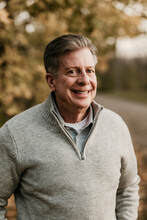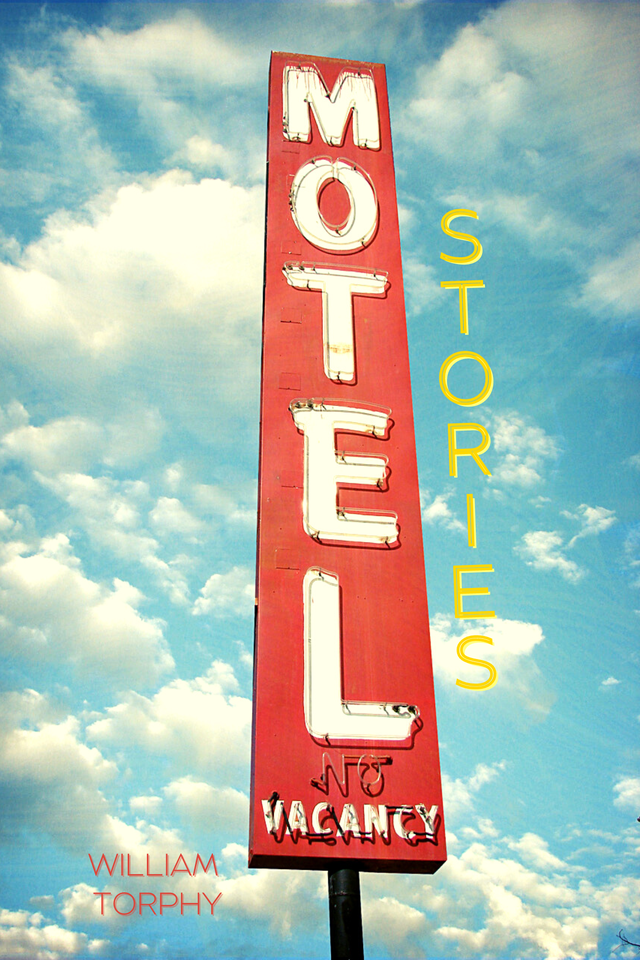- Fiction
- >
- MOTEL STORIES by William Torphy
MOTEL STORIES by William Torphy
The fictional Sunset Inn is a seedy motel with a storied past on a neglected block of Hollywood Boulevard. In twenty linked tales, “Motel Stories” takes an empathetic deep dive into the eccentricities and troubled lives of the diverse guests who check in to this refuge of last resort—for either pleasure or escape, and always an interrupted night’s sleep.
Edward, the motel’s cynical but occasionally accommodating manager, confronts a daily cast of ever-changing characters. A man who dances with dolls. Central American immigrants from civil war celebrating their honeymoon. The addict mother of a newborn infant facing a fateful reunion with her long-lost brother. A disgraced politician forced into hiding. A Vietnamese mama’s boy waiting to meet his foreign bride. An elderly couple checking in to the same room where they first met sixty years earlier.
Four interrelated stories complete the collection. A Filipina internet bride struggles to maintain her autonomy in suburban America. A teenage boy flees his hometown to escape persecution. A female impersonator replaces her glamorous mentor on stage. A gay, middle-aged gallery owner confronts his own errant past when his troubled teenage nephew visits.
William Torphy portrays these characters with both empathy and wry humor, revealing their universal desire for love and connection, recognition and security. Sometimes raw, and often humorous, this timely debut collection pierces through both the loneliness and the humanity of distressed outliers temporarily set adrift by circumstance in the American underbelly.
BOOK DETAILS
Genre: Fiction
ISBN: 978-1-956692-61-7
Publication Date: March 14, 2023
Advance Praise for MOTEL STORIES
—MARC JAMPOLE, Author of The Brothers Silver
About the Author

Colm Toibin. I’m part Irish and have an affinity to that land as well as admiration for the broadly varied subjects and both male and female characters Toibin has taken on so sensitively. “The Master” and “Brooklyn” I suppose I’d dish up a cassoulet, the French version of Irish stew.
What scares you the most about the writing process? How do you combat your fears?
The blank page. Putting pen to paper.
What books are on your nightstand?
I just finished Colson Whitehead’s “Harlem Shuffle,” a serious period romp. Waiting for me to pick up is a fairly eclectic selection of already should-have-read modern and contemporary classics: Llosa’s “Feast of the Goat,” TC Boyle’s “Budding Prospects,” Zadie Smith’s “White Teeth.” But I may take a vacation break with Daniel Silva’s thriller, “The Cellist,” in which the Mossad takes on the Russian financial Mafia.
Favorite punctuation mark? Why?
The period. It means I’ve made progress and can move on to a new sentence.
What book were you supposed to read in high school, but never did?
“Pride & Prejudice.” As a teenager, I was convinced it would bore me. I was too immature to understand its subtle critique of social mores that is still relevant to this day.
What inanimate object would you thank in your acknowledgements?
My favorite pens that run out of ink with no warning. They provide me a reminder of how hard I’ve worked.
If you could write an inspirational quote on the mirrors of aspiring writers, what would you write? “Write with Intention and Attention.” I also like what Louis L’Amour said, appropriate for a larger bathroom mirror: “Start writing, no matter what. The water does not flow until the faucet is turned on.”
Does writing energize or exhaust you?
The act of writing energizes me greatly, though when I stop, I’m fairly exhausted, and find it difficult for an hour or so to reintegrate into “real life”.
What are common traps for aspiring writers?
Perfectionism and thinking you need an “important idea” to begin.
What is your writing Kryptonite?
An idea, phrase, news item, piece of gossip that grabs me by the balls.
Have you ever gotten reader’s block?
The closest I’ve come is fearing that I might have writer’s block rather than understanding that I may require a reasonable amount of time to collect myself and begin again.
Do you think someone could be a writer if they don’t feel emotions strongly?
Yes, but perhaps a technical writer for plumbing fixtures.
What other authors are you friends with, and how do they help you become a better writer?
My writing group has supported me through numerous drafts and gaffs. They have always been both constructively critical and extraordinarily supportive.
Do you want each book to stand on its own, or are you trying to build a body of work with connections between each book?
I primarily write short stories, many of which are independent of others, though my collection “Motel Stories” contains twenty linked stories that all take place at a seedy motel on Hollywood Boulevard.
How did publishing your first book change your process of writing?
“Love Never Always” was my first publication, a collection of poetry that gave me the confidence to let my writing flow with fewer doubts.
What was the best money you ever spent as a writer?
A really good, large desk that has room for all my notes on scraps I make to write.
What authors did you dislike at first but grew into?
Maybe Somerset Maugham. “Of Human Bondage” is ridiculously dramatic, and possesses an overly complicated plot and a disappointing ending, but I learned a lot about leaning toward concision and simplicity after wading through a couple of his novels.
What was an early experience where you learned that language had power?
When I called a bully for what he was on the playground.
What’s your favorite under-appreciated novel?
I’m not sure what constitutes an under-appreciated novel, but there are so many fine ones that don’t get the attention they deserve.
As a writer, what would you choose as your mascot/avatar/spirit animal?
Probably the coyote, the Native American trickster.
What do you owe the real people upon whom you base your characters?
The truth from my point of view as to how they have revealed themselves to me.
How many unpublished and half-finished books do you have?
Two unfinished novels and perhaps 60 unpublished short stories.
What does literary success look like to you?
Getting published more often and receiving an occasional personal message of praise from an editor.
What’s the best way to market your books?
A good email list personalizes your approach with built-in support. Getting reviewed and accepted into strategic bookstores along with readings gets the word out.
What’s the most difficult thing about writing characters from the opposite sex?
Eliminating the blind spots and POV of a male, albeit a “sensitive” one.
What did you edit out of this book?”
A very long story featuring four complex female characters. I’ll save it for a future publication I have in mind.
If you didn’t write, what would you do for work?
I’ve been a visual art curator for many years, a profession that I love intensely.
